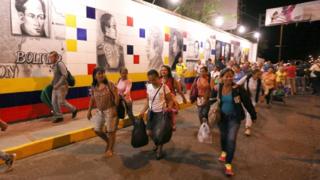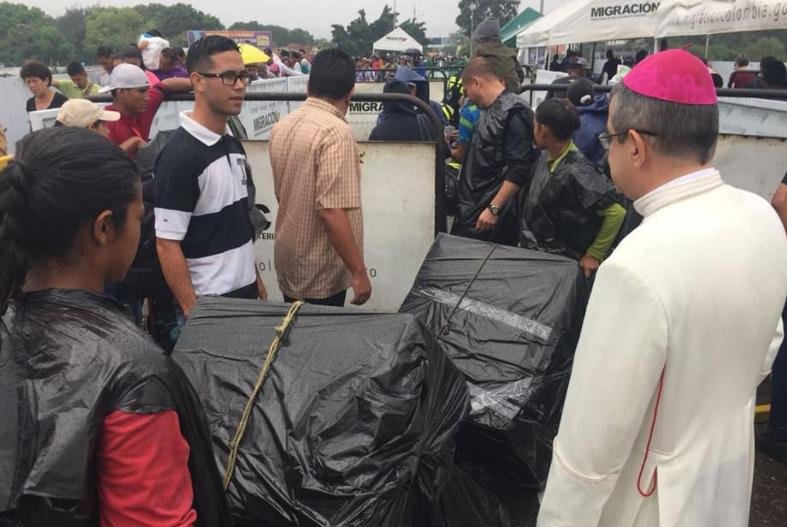
Lots of reports about Venezuela falling apart have been around for months. However, this is the first time I've seen the vaunted New York Times do the same. But. Read the article and nowhere will you find anything about the cause – socialism and a typical socialist dictator.
In the capital’s Dr. José María Vargas hospital, a doctor watched a 73-year-old woman die of kidney failure because the hospital lacked the medicine to perform a routine dialysis. In a Caracas police station, more than 150 prisoners crowded into a cell made for 36, standing shirtless (there was no room to sit) in the stench of sweat and feces. In arid Lara state, an elementary-school teacher told of children fainting in class from hunger. The economy contracted by almost 6% last year, and is expected to shrink by as much as 10% this year.
And it sits atop a massive amount of oil! Oops. Could it be that the country's woes come from the fact that their 7-11 franchises no longer sell Venezuelan oil? Or that the USA is now nearly oil dependent? Didn't notice that anywhere in the article and can't understand why.
Full story w/photos @ How Venezuela, Once Latin America's Richest Nation, Collapsed














